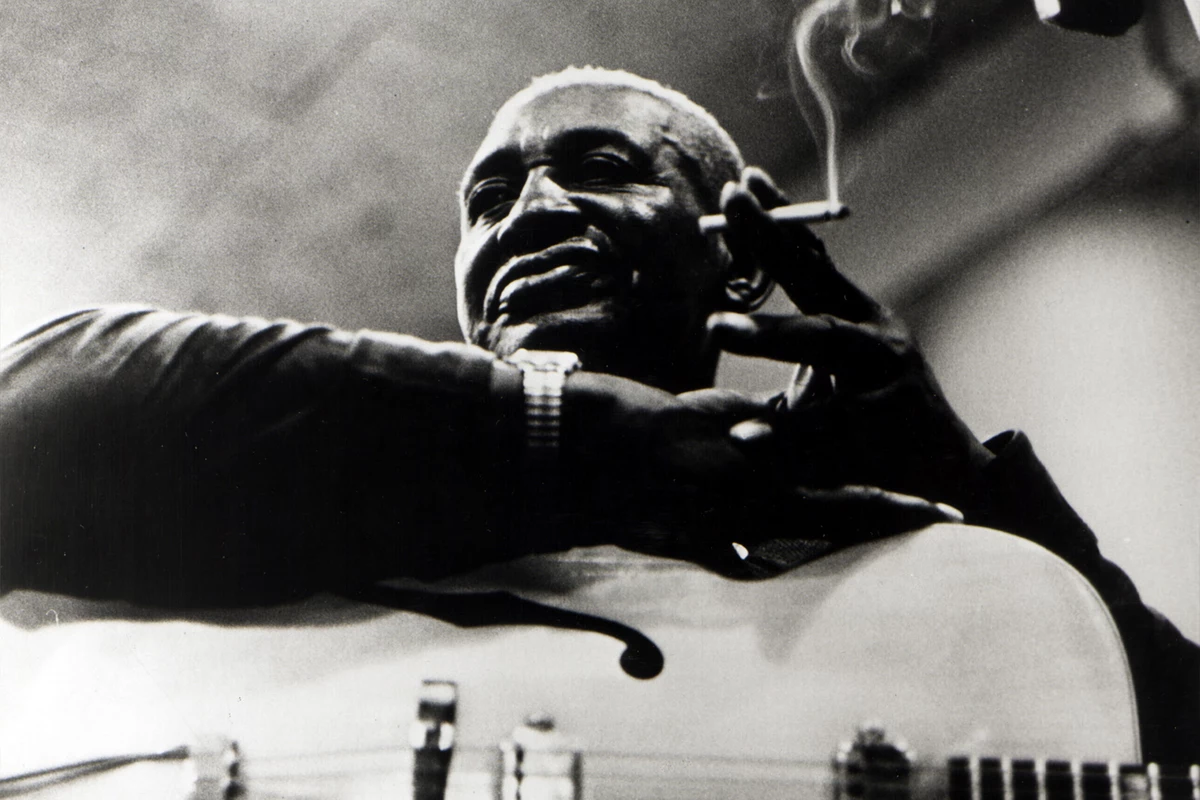Most music fans today are aware there’s a long-running argument about whether the writers of the songs we love are fairly compensated for the profits made out of them.
The internet brought the argument into the light, but it wasn’t really new. Since the era of recorded music began – and actually, long before that, when people bought sheet music rather than albums – the disagreement has raged on.
It’s often assumed that those who reach certain heady heights will be more immune from being ripped off, if only because they can command bigger percentages and hire better lawyers. But consider the case of Arthur Crudup, who died on March 28, 1974. While his name may be almost unknown in some circles, his songs most certainly aren’t. But he still died in poverty, just like he predicted he would.
READ MORE: Elvis Presley Launches Recording Career for $4
Crudup – also known as Big Boy Crudup, Elmer James and Percy Lee Crudup – was the author of “That’s All Right” in 1946. Of course, Elvis Presley’s 1954 version is the best-known, and it’s one of the compositions that stakes a claim to be the first-ever rock ’n’ roll song.
Presley recorded two more of Crudup’s tracks, “My Baby Left Me” and “So Glad You’re Mine.” Presley is reported to have said: “The colored folks been singing it and playing it just like I’m doin’ now, man, for more years than I know. I got it from them. Down in Tupelo, Mississippi, I used to hear old Arthur Crudup bang his box the way I do now, and I said if I ever got to the place I could feel all old Arthur felt, I’d be a music man like nobody ever saw.”
The Blues Foundation described Crudup as “probably the country’s most popular downhome-style bluesman in terms of record sales and jukebox play,” noting that “artists from Elton John to Eric Clapton to B.B. King covered his songs too.
Arthur Crudup’s ‘That’s All Right’
“But Crudup was a classic victim of music industry exploitation, and despite the commercial success… was never able to even support his family from his music.” He’s said to have been an “enterprising, self-made man,” and “when the the recording business finally got the best of him, he simply left it behind.”
Paid only a few thousand dollars during his music career, he undertook a huge range of jobs from lumberjack to migrant worker transporter, and at one point ran his own juke joint. When the blues resurged in the late ‘60s, he returned to action for a brief period, working with Bonnie Raitt as his final professional engagement in 1970.
Later, blues advocate Dick Waterman started a battle to have some of the missing royalties repaid, and nearly secured a $60,000 payment from Hill Range Publishing. “When the lawyer dealing with the issue went upstairs to get the check signed by the manager, he returned to the table pale and shaken,” Waterman wrote in his 2003 memoir Between Midnight And Day.
Arthur Crudup Died Before Any Justice Was Done
The lawyer said: “He won’t sign the agreement. He said it gives more away in settlement than you could hope to get from litigation.” Realizing “we were not going to get anything at all,” Waterman told Crudup “over and over that we would get them and make them pay for what they had done to him.
“Arthur looked me in the face and spoke slowly. ‘I know you done the best you could. I respects you and I honors you in my heart. But it just ain’t meant to be.’”
Crudup had said in 1970: “I was born poor, I live poor, and I am going to die poor” [via David Szatmary’s 1991 book Rockin’ In Time]. He was right – he passed aged 68, without a penny to his name, a year after the failed settlement attempt.
But Waterman didn’t give up, and in the years to follow over $3 million would be paid to Crudup’s estate. “Despite the slight righting of the scales of justice in the way of money, Crudup still never really secured the reputation he deserved,” Guitar Tricks commented.
44 Famous Records You Probably Didn’t Realize Were Covers
Bet you didn’t know somebody else recorded these songs before they got popular.
Gallery Credit: Dave Lifton
